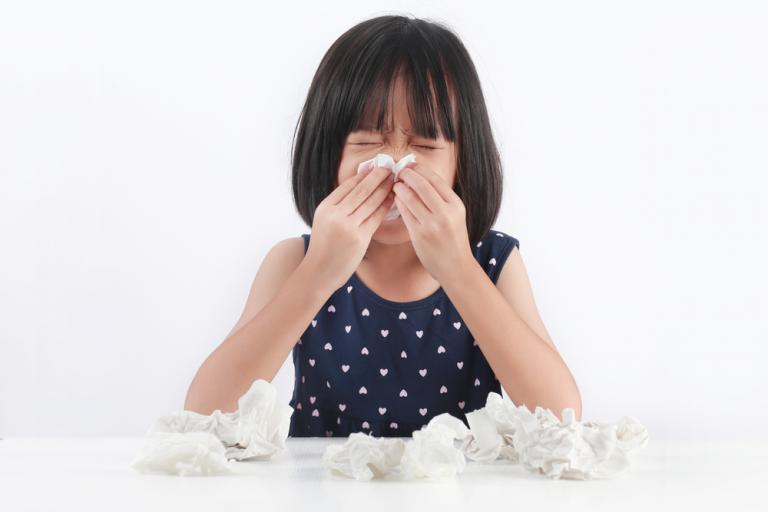Ad Code
Translate
Five Do’s For a Healthy Turnover That Bolsters Talent-Retention
Smart strategies for trading on crypto exchanges
What is Ozempic (semaglutide)? (Updated in 2025)
Discover Honeybee Pharmacy (2025 Guide Important Consumer Tips)
Posture Bra: Improving Back Support and Comfort
How To Find Suitable Properties In Cyprus?
10 Effective Strategies to Improve Domain Authority of Your Website
Your Guide to Rhinitis: Types, Symptoms, and Treatments

Proper diagnosis and treatment by a qualified ENT specialist is essential, especially for persistent or severe cases. Treatment strategies depend on the type of rhinitis.
Main Types of Rhinitis
1. Allergic Rhinitis
Allergic rhinitis is triggered by exposure to allergens such as pollen, dust mites, mold, animal dander, or certain chemicals.
Symptoms:
-
Sneezing
-
Runny or congested nose
-
Itchy nose, throat, or eyes
-
Watery eyes
Management:
Although it cannot be cured, allergic rhinitis can be managed effectively. Key strategies include:
-
Avoiding known allergens
-
Using antihistamines at the onset of symptoms
-
Nasal decongestant sprays (short-term use)
-
Saline rinses to flush allergens
-
Flu vaccines and humidifiers to reduce triggers
-
Minimizing pollen exposure during peak seasons
2. Non-Allergic Rhinitis
This form of rhinitis does not involve allergens or immune reactions. Common triggers include viral infections, hormonal changes, stress, medications, weather fluctuations, or strong odors.
Subtypes of Non-Allergic Rhinitis:
A. Acute Viral Rhinitis
Caused by viral infections (like the common cold).
Symptoms:
-
Low-grade fever
-
Congestion
-
Cough
-
Postnasal drip
Treatment:
-
Symptom relief with decongestant sprays (limit to 3–4 days)
-
Antihistamines for nasal symptoms
-
Rest and fluids
B. Chronic Rhinitis
Chronic rhinitis may be due to long-term exposure to irritants, underlying diseases (e.g., asthma), or pregnancy.
Symptoms:
-
Constant nasal blockage
-
Nosebleeds
-
Crusting inside the nose
-
Foul-smelling or pus-filled discharge
Management:
-
Decongestant sprays (under medical guidance)
-
Further testing (nasal cultures, biopsies) to rule out serious conditions
C. Atrophic Rhinitis
Most common in older adults, this occurs when the nasal lining thins and dries out, often accompanied by the shrinkage of nasal bones.
Symptoms:
-
Foul-smelling nasal discharge
-
Crusting
-
Nosebleeds
-
Frequent infections
-
Headaches and sore throat
-
Nasal deformity
-
Rehydrating and moisturizing the nasal cavity
-
Antibiotics for infections
-
Saline rinses and nasal gels
D. Vasomotor Rhinitis
A chronic condition that mimics allergic rhinitis but without any allergic cause.
Triggers:
-
Strong odors (e.g., perfumes)
-
Cold air
-
Smoke
-
Spicy foods
-
Changes in temperature
Symptoms:
-
Runny or blocked nose
-
Sneezing
Treatment:
-
Identify and avoid triggers
-
Use humidifiers, decongestants, and nasal sprays
-
ENT consultation for targeted therapies
E. Rhinitis Medicamentosa (Rebound Congestion)
This condition results from the overuse of nasal decongestant sprays, which leads to worsening congestion rather than relief.
Symptoms:
-
Severe nasal blockage
-
Dependency on nasal sprays
Management:
-
Gradual withdrawal from decongestants
-
Use of saline nasal sprays and topical corticosteroids
-
Medical support for symptom control
Final Thoughts
Rhinitis can be mild and temporary or severe and chronic. Understanding its type is essential for proper management. If you’re struggling with persistent symptoms, consulting an experienced ENT specialist in Lahore or your local area is highly recommended. With the right approach, most forms of rhinitis can be managed effectively, restoring your comfort and quality of life.

Social Plugin